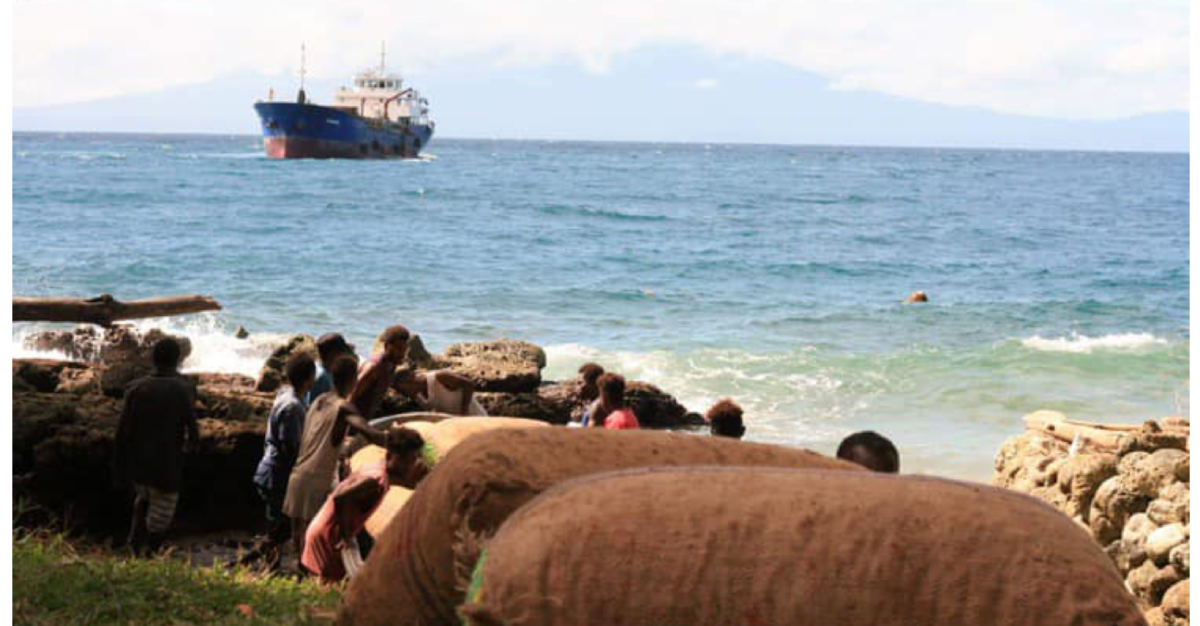Farmers in the Western Province have voiced serious concerns over poor shipping services, which they claimed is limiting the full potential of agricultural production and market access—particularly for copra and cocoa commodities.
According to the Western Provincial Agriculture Office, despite recent gains in plantation improvement thanks to funding support from the Cocoa and Coconut Revolving Fund (CCRF), ongoing issues with shipping continue to undermine farmers’ ability to sell their products in a timely and profitable manner.
Western Provincial Agriculture Chief Field Officer Sipuru Rove told the Solomon Star that while government initiatives have made a positive impact in rural farming communities, weak and inconsistent shipping services remain a major obstacle.
“Shipping remains a major constraint for farmers in the Western Province,” Mr Rove said.
“We’ve seen how farmers have cleaned up their plantations and increased their production levels, but without reliable transport, much of that effort is lost,” he added.
Mr Rove stressed that transporting agricultural produce—particularly perishable or time-sensitive goods like copra and cocoa—requires consistent and cost-effective access to shipping routes between rural communities and central markets like Honiara.
He explained that some farmers are forced to wait weeks for vessels to arrive, resulting in delays that affect both the quality of their products and the income they can earn.
In many cases, the lack of a dependable shipping schedule leads to products piling up in villages, exposing them to weather damage and loss.
“If we want to sustain this momentum, we need reliable and affordable shipping options to get our products to buyers,” he said.
Otherwise, the investment made through funding programs like the CCRF will not achieve its full impact, he added.
Rove noted that at the moment only MV Florence is actively traveling to the remote areas by stopping at villages to collect copra bags.
He said, however MV Florence only needed a minimum of 6000 copra bags from farmers to make good money.
Otherwise, if there are 5000 bags and below, the ship cannot make the trip. “Moreover, that’s minimum but it can go above 10,000 copra bags,” he added.
Rove added that better coordination between shipping operators, the government, and local producers is needed to address this long-standing issue.
In the long run, Rove said, improvements in shipping will not only benefit individual farmers but help strengthen the overall rural economy by ensuring agricultural products reach their intended markets on time.
Meanwhile, the latest price per bag kilo is now $6 dollars.
Farmers across the province are now calling on relevant authorities, including the Ministry of Infrastructure Development and shipping stakeholders, to find urgent solutions to the logistical challenges affecting rural agriculture.
By ULUTAH GINA
Solomon Star, Gizo





